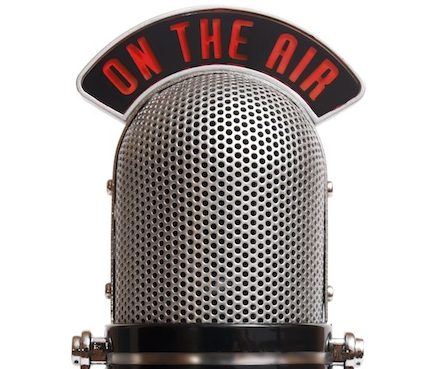Media: August 2017
It’s been ten years since I wrote my first novel $everance (ENC Press, 2007). That book was a satire about what had become of the media business since the original deregulation in 1996. It was intended to shine a light on the dangers of entrusting so much control over news and information in the hands of so few individuals. I pointed out that the checks and balances stopping them from imposing their will over our information flow (like the Fairness Doctrine and media ownership limits) had eroded and in some cases disappeared. I used satire to take this subject to its logical extreme, which included what could happen in the political realm. It was intentionally ridiculous to make a point. I hoped that comedy would help people see the red flags on the horizon.
Sadly, most of those ridiculous predictions have now come true. And with the recent moves to further deregulate the media business, it’s about to get worse. The first sign of that is happening right here in Chicago. Tribune Broadcasting is merging with Sinclair Broadcasting, which threatens to fundamentally change one of the last truly independent media companies in America. Sinclair is sure to create a more political WGN, which is the last thing we need in Chicago.
I don’t even blame Sinclair for doing so. They see potential riches in their future. They are simply following a game plan that has served broadcasters well over the past two decades. Once the media companies discovered that they could make more money targeting a niche audience based on political beliefs instead of broadcasting to a mass audience, they started doing it everywhere. It’s been good for their pocketbooks. Rupert Murdoch didn’t create his media empire at Fox to affect political change. He founded it to serve an underserved political audience, and the dollars fell from the sky. That was a financial decision first and foremost.
It took a little longer for the political left to create a similar ecosystem, partially because the political right was correct when they noticed a slight liberal bias in mainstream news coverage, although it was totally different than the Fox News model. In $everance, I created a Fox-icized liberal network just to show the difference. It wasn’t enough to have a slight bias, which is what the mainstream media has. Foxing it up required a full-fledged cheerleading of one party and a total demonizing of the other. I wrote it as a joke. Satire. Comedy. I didn’t think it would really happen, but it did a few years ago. MSNBC was reinvented as the mirror image of Fox News and has been handsomely rewarded for doing so.
From these tentacles of left and right, entire political information eco-systems have emerged. We now have media bubbles on both sides that allow readers, viewers, and/or listeners to consume only the things that reinforce already held beliefs (“Us Good, Them Bad”). The media companies that provide that content know darn well how lucrative it is to do so, and have zero motivation to stop it.
Unfortunately, the damage has already been done to our political system, and that’s very obvious. The Russians even figured that out when they created fake news stories. They didn’t share those stories with the few remaining real news outlets like The New York Times, The Washington Post, The Wall Street Journal, or the nightly national network newscasts. Most of the stories were shared through social media and (perhaps unknowingly) complicit digital or broadcast outlets that were simply providing their audiences with what they wanted to see, hear, or read. And when the other side of the political divide didn’t report these obviously bogus stories (like the child-sex ring Hillary Clinton supposedly ran out of a pizza joint in Washington), it was held up as proof of media bias.
Sorry, but that ship left the dock when the Fairness Doctrine was repealed in the ’80s, and when six corporations gobbled up 90% of the media companies in America after deregulation in the ’90s. It wasn’t done on purpose. It wasn’t done for conspiratorial reasons. It happened because allowing so few corporations to control our media was and is a bad idea.
Why? Well, once they acquired so many properties, they had to cut costs to meet their debt payments, which were astronomical. News departments were eliminated or “slimmed down” all over the country at local radio and television outlets. Support staff was cut to ridiculous levels. Corporate “synergy” replaced local autonomy. Newspapers merged or folded. The employees that remained were forced to do the job of many–and that job was something that we took for granted before this happened. Those media professionals provided us with the shared set of facts that formed the basis of rational political debate in this country.
In a world that appears to deliver us more information more quickly and more voluminously than ever before, we actually have far fewer unbiased news gatherers providing us that information. We now have lots more people analyzing news, but not nearly as many people reporting news. And it’s harder to tell the difference anymore, which is why it is so easy to disregard anything that doesn’t fit your preconceived notions of the world.
It took us a while to get here, but that’s where we are today. More consolidation is beginning to take place, and that’s only going to make the situation worse.
Boy, was I wrong when I wrote about it in 2007. It’s definitely not a comedy.
-Rick Kaempfer













For a full listing of who owns what in the media, check these two links…
http://rickkaempfer.blogspot.com/2017/08/big-media-who-owns-what.html
http://rickkaempfer.blogspot.com/2017/08/big-media-who-owns-what-radio.html